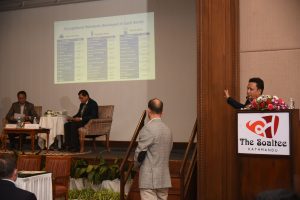

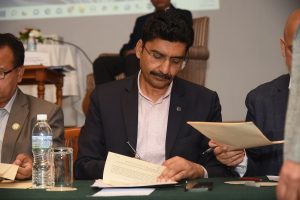


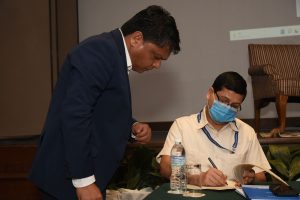
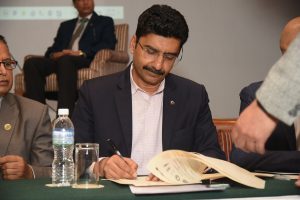
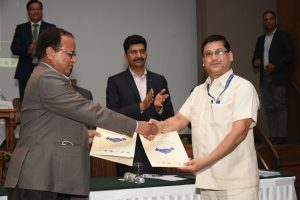
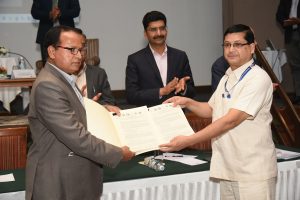
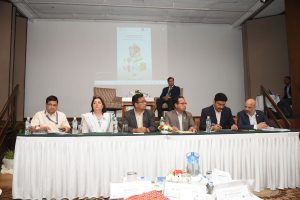
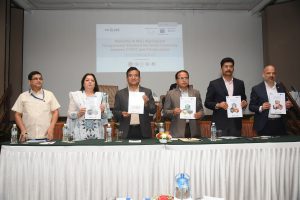
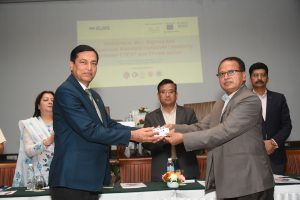

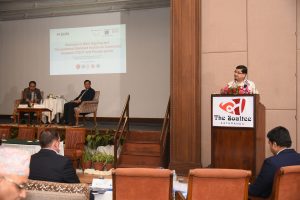
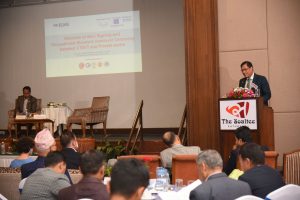

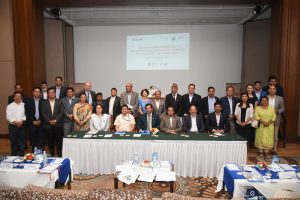


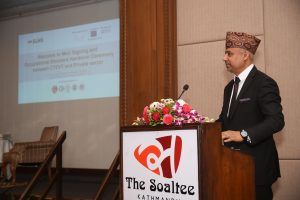




A Memorandum of Understanding was signed at an event between CTEVT (Council for Technical Education & Vocational Training) and the five employer associations (FNCCI, CNI, FCAN, FNCSI and HAN) contributing to the ELMS (Employer Labour Market Secretariat).
This was to mark the formal handing over of 30 Occupational Standards in the three key sectors, a key milestone under the ELMS project. The project is funded by the European Union and managed by the British Council with support from the Dakchyata project. The event celebrated the formalising of links established between the participating employer associations and key supply-side partners (CTEVT).
The MoU represents a positive outcome that will support a sustainable role and model for employer-led labour market activities. It demonstrates the ‘mechanics’ of how employer-led demand can be captured through occupational standards, and then translated, through links with CTEVT, into training programmes that promote a direct line of sight between training and industry.
One of the main objectives set for the ELMS project was to provide a platform for employers to contribute ‘demand side’ information to labour market dialogues and planning. Thus, sharing of the employer-led occupational standards with CTEVT is a tangible result achieved under the ELMS project.
The president of FNCCI, Mr Shekhar Golcha emphasised that developing occupation standards was conducted through rigorous feedback from more than 1000 employers from all over Nepal, and represents a ground-breaking paradigm shift for TVET reform in Nepal.
Dr Marco Gemmer, Head of Cooperation, European Union in Nepal, asserted that it is a landmark achievement – having joint government and private sector ownership is crucial to quality TVET and that this MoU serves as a breakthrough in involving the private sector in TVET.
British Council, Country Director, Shahida MacDougall also emphasised that the collaborative approach whereby the employer associations, through ELMS, are partnering with CTEVT, will enhance the relevancy and quality of TVET programmes.
Member Secretary of CTEVT, Mr Jeeb Narayan Kafle, stated that 30 Occupational Standards are important for CTEVT and NSTB, and expressed a commitment to use these standards in the future.
All the key speakers from the private sector and CTEVT echoed that the MoU is historic in fostering collaboration in the development of relevant and quality TVET and the need for this progress to be sustained through continuous labour market dialogue. Private Sectors are enthusiastic about working with CTEVT towards the long-term development of TVET and effective Labour Market Information Systems.
ELMS is a forum through which Nepal’s five key employer associations, FNCCI, CNI, FNCSI, HAN and FCAN are working together in creating harmonised approaches to labour market activities. In addition, the project has also allowed for the development of an organisational infrastructure that will support the delivery of Labour Market activities, including a Board, Coordinating Committee, Operational Unit and Sector Working Groups. The associations are now working together, through the project, towards developing a sustainable model to continue its contribution to capturing harmonised demand-side labour market information.
